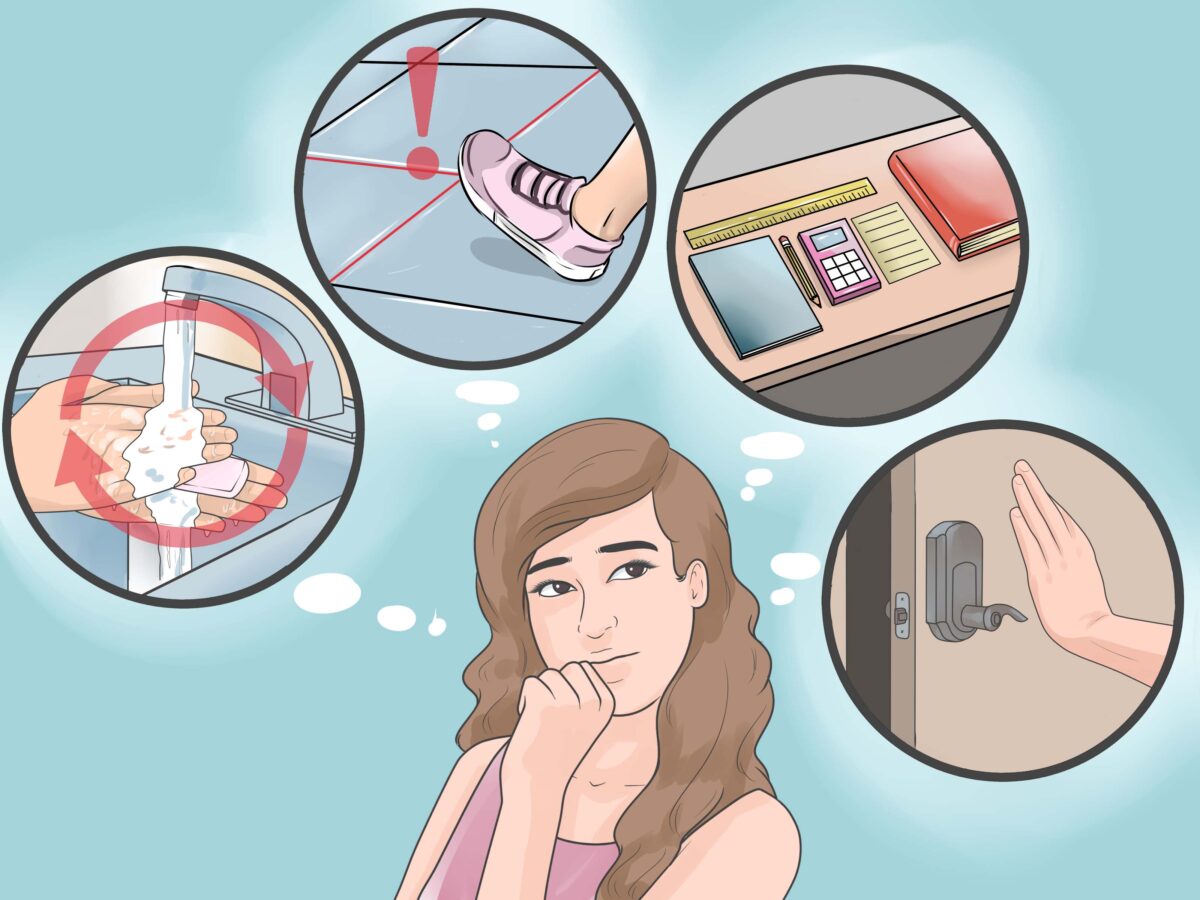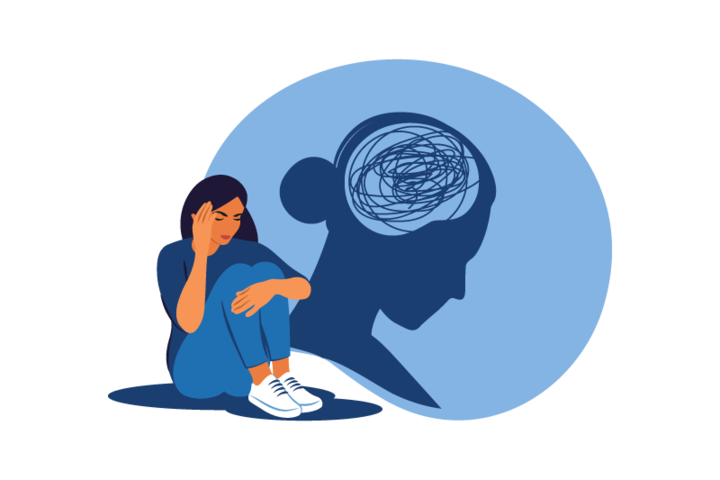Obsessive Compulsive Disorder or OCD is a disorder characterised by having irrational thoughts which are compelling in nature leading the person to urge into a recurrent behaviour.
OCD, in simple words is a condition where strong unreasonable thoughts play in a loop in your head, leading you to engage in repeated actions over which the person has trivial control.
OCD comes along with its entourage of symptoms including anxiety, impulsiveness, stereotyped behaviour (washing hands, hair picking etc), excessive alertness among others.

Living with OCD can be challenging since you feel like your mind has been hijacked by the disorder and you have little control over it. Therapy and Meditation can play a major role in alleviating the severity of the issue. However, surviving in the social setting requires more comprehensive interventions independent of a professional guide.
Let’s explore how we can choose to combat OCD in our daily life and self-expediate the healing process.
-
Address your Anxiety.
Instead of indulging in avoidance or escapism, learn to recognize your anxious and irrational patterns of thoughts. Acknowledgement is the first step towards treatment.
Knowing that these thoughts are not axioms but just your mind’s creation. Attempt to slowly segregate the element of compellation from your thinking.
2. Practice Mindfulness.
When obsessive thoughts enter your mind, take some time to evaluate these thoughts. Thoughts cannot be regulated so easily but the way you choose to act or give into them is up to you.
 Bit by bit, try delaying the obsessive thoughts and consciously discriminate between rational and irrational thinking and behaviour. Rewarding yourself with small achievements!
Bit by bit, try delaying the obsessive thoughts and consciously discriminate between rational and irrational thinking and behaviour. Rewarding yourself with small achievements!
Engage in meditation, yoga, relaxation ritual or a hobby you like to calm and control yourself in overwhelming moments.
3) Its Okay to Let Go.
People with OCD have a drive to chase ideal. They want thi
ngs to be done in a certain specified way only which they think is the only ‘right’ way.
The impel to chase perfection can be slowly loosened by gradually building tolerance to uncertainty and learning to accept minor inadequacies as a part of normal.
4) Be Aware when OCD manifests
Rather than giving into your thoughts, practice to live with them for a while before acting on it. Shift your attention, distract yourself – exercise, read, talk to someone, and delay the impulsive need to act on your cognition.
When you learn to detain the thoughts, your mind will eventually condition to build tolerance to them. Re-evaluate the thought after a while, allowing it to lose its intensity.
5) Strengthen your Mind
Some OCD symptoms include rechecking things multiple times to make sure they are perfect. For example confirming if the door is locked or cleaning the stuff repeatedly.
When these urges express, affirm strongly to yourself that YES, the door is locked. I have checked it or while cleaning, remind yourself that the first clean was thorough and adequate.
6) Join Forces
This battle cannot be fought alone, nor does it have to be. There are umpteen hand waiting to be held to help you in your journey to healing. Reach out to support groups or people you find comfort confiding it.
 Ask them to check up on your progress and count on friends and family to keep you empowered and provide support.
Ask them to check up on your progress and count on friends and family to keep you empowered and provide support.
7) Empathise and Empower
If you know people around you suffering from OCD, know that it is not them who do engage in obsessive, irrational behaviour, but a small part of their self hijacked by the disorder expressing. Be kind, warm, understanding and patient with them.
Keep reminding them of their irrational acts and positively support them throughout their journey.
Together we battle the disorders of mind and together we tread towards a more fulfilling existence!












Comments 1